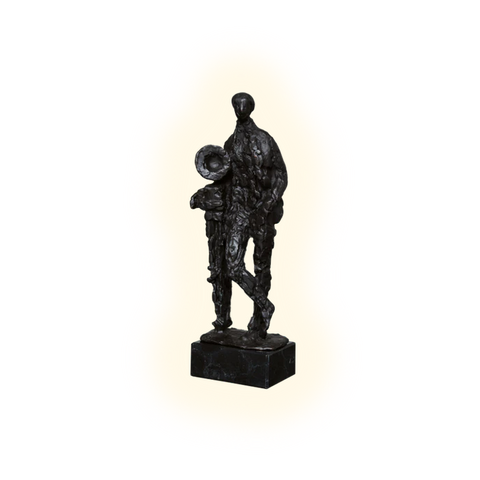WE APPRECIATE IT IF YOU WRITE A COMMENT IN THE CUSTOMER REVIEW SECTION SCROLLING DOWN ON THE PRODUCT PAGES
Jaap van Zweden / Netherlands Radio Philharmonic Orchestra
Jaap van Zweden / Netherlands Radio Philharmonic Orchestra
Adding product to your cart



Richard Wagner – Parsifal
The Netherlands Radio Philharmonic Orchestra | Netherlands Radio Choir | State Male Choir ‘Latvija’
Jaap van Zweden
Challenge Classics / HQ|NORTHSTAR
Catalogue CC72519
(Low Resolution excerpts)
Philosopher Ernst Bloch once referred to the ‘Bühnenweihfestspiel’ or consecrational stage festival Parsifal as ‘a metaphysical adagio’. In these few words he summed up the story line and the musical purport of Wagner's last opera – that is, if such a thing is at all possible in his operas, because as a composer Wagner was never at a loss for words when it came to bandying about statements artistic and non-artistic about the world in general and the universe in particular. Wagner’s musical theatre revolves around fundamental questions of human existence. Tristan und Isolde is about an all-consuming love, but also about the implications of the longing for love and the death wish. The work is about defining an identity through love and the loss of that identity through that same love. Der Ring des Nibelungen is about the incompatibility of love and the pursuit of power; it is also an in-depth exploration of the question of whether man has a free will, and it is about the eternal cycle of destruction and renewal which holds mankind captive on this earth.
Parsifal is about all of the above and much, much more. Wagner himself defined the theme of his swan song as ‘Das große Leid des Lebens’, the great suffering of life. Everything he still wanted to say at the end of his life about life, love, sex, psychology, politics, society, nature, art, Christianity, Buddhism, Judaism and anti-Semitism was mixed together in a grail chalice (poisonous, according to some) to form a ‘metaphysical adagio' of four hours of consecrational musical drama. Consecrational in the literal meaning of the word. Wagner’s own name for the genre, ‘Bühnenweihfestspiel’ means a consecrational stage festival. The plot of Parsifal refers implicitly and explicitly to Christianity and religious rites. Indeed, it was one of Wagner’s many ambitions to replace European Christianity by his own ritual art.
The Ring Wagner had to resolve the ‘problem’ of love in a new work. That work was Parsifal. The essential difference with all his prior works is the fact that there is no love in Parsifal. All the characters live in a loveless universe in which only the urge to reproduce – desire, lust – remains. Although Wagner's answer to this remains to be seen for the time being, one thing is important here. With Schopenhauer, Wagner does not view the urge to reproduce as morally reprehensible. He situated Siegfried, who suffered from the same fault in the Ring, in an amoral universe, not an immoral one – in a world where morals are not violated, but where all moral is absent. This is also the case in Parsifal, and it is part of the secret of Wagner’s huge success in the nineteenth century.
Vorspiel
He! Ho! Waldhuter ihr
Recht so! - Habt Dank! - Ein wenig Rast
Nicht Dank! - Haha! Was wird es helfen?
O wunden-wundervoller heiliger Speer
Titurel, der fromme Held, der kannt'ihn wohl
Weh! Weh!...Wer ist der Frevler
Nun sag! Nichts weisst du, was ich dich frage
Vom Bade kehrt der Konig heim
Verwandlungsmusik
Nun achte wohl und lass mich seh'n
Mein Sohn Amfortas, bist du am Amt?
Enthullet den Gral!
Wein und Brot des letzten Mahles
Vorspiel
Die Zeit ist da - Schon lockt mein Zauberschloss den Toren
Ach! - Ach! Tiefe Nacht!
Hier war das Tosen! Hier, hier!
Komm, komm, holder Knabe!
Parsifal! - Weile!
Dies alles hab'ich nun getraumt
Wehe! Wehe! Was tat ich? Wo war ich?
Amfortas! - Die Wunde! - Die Wunde!
Grausamer! Fuhlst du im Herzen nur and'rer Schmerzen
Vergeh, unseliges Weib!
Act 3 Vorspiel
Von dorther kam das Stohnen
Heil dir, mein Gast!
Heil mir, dass ich dich wiederfinde!
O Herr! War es ein Fluch
Nicht so! - Die heil'ge Quelle selbst erquicke unsres Pilgers Bad
Gesegnet sei, du Reiner, durch das Reine!...
Wie dunkt mich doch die Aue heut so schon!
Du siehst, das ist nicht so
Mittag. - Die Stund' ist da
Geleiten wir im bergenden Schrein den Gral zum heiligen Amte
Ja, Wehe! Wehe! Weh' uber mich!
Nur ein Waffe taugt
Hochsten heiles Wunder!


If you like this production, you also might like the following recordings hereunder in the Related products section.